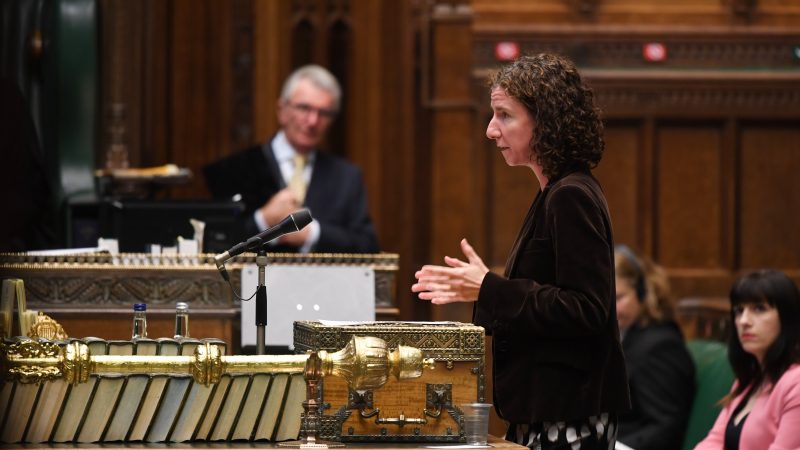
Should Labour side with right-wing Tories against a rise in corporation tax in the upcoming Budget? Lisa Nandy doubled down on the position in a BBC interview yesterday, saying “there will be a time for raising taxes, doing it fairly and paying down the debt – but that time is not now”. She said businesses in her constituency were concerned “because they just simply can’t afford it at the moment” and the tax rise “could be the difference between viable businesses going under and not”. But as Andrew Fisher highlights in his piece arguing that Labour should back a hike, business rates are fixed costs whereas corporation tax only hits profits. The former Labour policy director believes the “now is not the time for tax rises” mantra is “simplistic and ill-defined”.
Pollster James Johnson, who worked under Theresa May, has pointed out that an increase is popular, and tax change proposals are particularly popular when framed as an act of paying back the NHS, which parties should see as an opportunity. Others have argued that Labour may well pledge to raise corporation tax nearer the next general election but should not to do so yet: not only for economic reasons amid the pandemic, but also because the opposition is struggling to cut through right now. Timing is obviously key to the Labour leadership’s position.
Anneliese Dodds specified yesterday that the party would oppose any “immediate” tax changes, but she does want a more progressive tax system. When I asked her about John McDonnell’s idea of a windfall tax on those who have profited during Covid earlier this week, she spoke of a “big gulf in taxation, especially between businesses based in bricks and mortar and those based in clicks and the internet” that has become “increasingly evident and frankly crass during this period”, and of the corporation tax regime being “full of holes”. Will Labour’s stance change in the run-up to the next election, or will the leadership still be trying to shed the party’s “pro-tax” image?
Another area of Labour policy heavily influenced by the desire to de-Corbynise the party is defence. John Healey will stress in a speech to the Royal United Service Institute today that Labour’s commitment to NATO is “unshakeable” and its support for the UK’s nuclear deterrent is “non-negotiable”. The Shadow Defence Secretary will also criticise the government’s real-terms cut in revenue spending at the Ministry of Defence. This positioning and even some of the rhetoric was shared by Jeremy Corbyn’s Labour, but this leadership hopes that people will believe it to be genuine now that the party is no longer led by a NATO critic who personally opposes Trident renewal.
Sign up to LabourList’s morning email for everything Labour, every weekday morning.



More from LabourList
‘What Batley and Spen taught me about standing up to divisive politics’
‘Security in the 21st century means more than just defence’
‘Better the devil you know’: what Gorton and Denton voters say about by-election